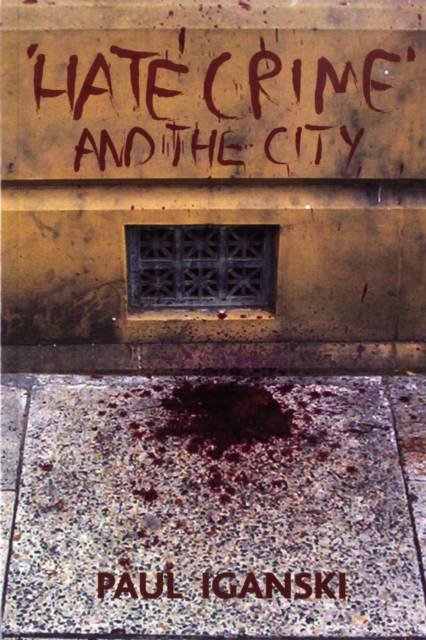
- Afhalen na 1 uur in een winkel met voorraad
- Gratis thuislevering in België vanaf € 30
- Ruim aanbod met 7 miljoen producten
- Afhalen na 1 uur in een winkel met voorraad
- Gratis thuislevering in België vanaf € 30
- Ruim aanbod met 7 miljoen producten
Omschrijving
The impression often conveyed by the media about hate crime offenders is that they are hate-fuelled individuals who, in acting out their extremely bigoted views, target their victims in premeditated violent attacks. Scholarly research on the perpetrators of hate crime has begun to provide a more nuanced picture. But the preoccupation of researchers with convicted offenders neglects the vast majority of hate crime offenders that do not come into contact with the criminal justice system.
This book, from a leading author in the field, widens understanding of hate crime by demonstrating that many offenders are ordinary people who offend in the context of their everyday lives. Written in a lively and accessible style, the book takes a victim-centred approach to explore and analyse hate crime as a social problem, providing an empirically informed and scholarly perspective. Aimed at academics and students of criminology, sociology and socio-legal studies, the book draws out the connections between the individual agency of offenders and the background structural context for their actions. It adds a new dimension to the debate about criminalising hate in light of concerns about the rise of punitive and expressive justice, scrutinizing the balance struck by hate crime laws between the rights of offenders and the rights of victims.
Specificaties
Betrokkenen
- Auteur(s):
- Uitgeverij:
Inhoud
- Aantal bladzijden:
- 168
- Taal:
- Engels
Eigenschappen
- Productcode (EAN):
- 9781861349392
- Verschijningsdatum:
- 9/07/2008
- Uitvoering:
- Paperback
- Formaat:
- Trade paperback (VS)
- Afmetingen:
- 152 mm x 231 mm
- Gewicht:
- 249 g

Alleen bij Standaard Boekhandel
Beoordelingen
We publiceren alleen reviews die voldoen aan de voorwaarden voor reviews. Bekijk onze voorwaarden voor reviews.









